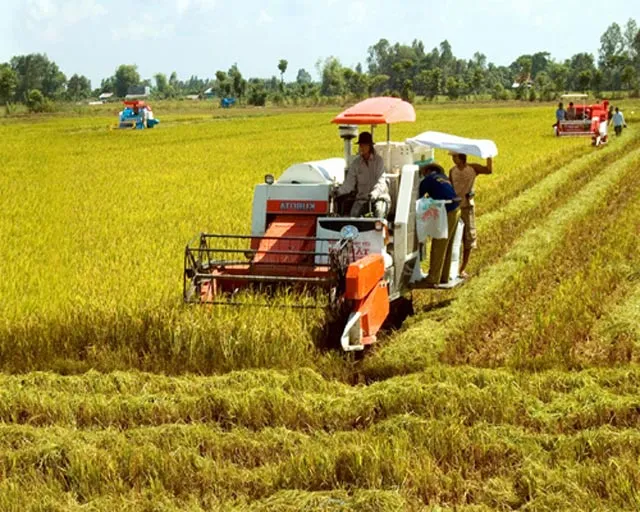
No inflation from rice shortage
Several countries are now becoming increasingly concerned about a shortage of food during the pandemic and people wanting to hoard. An economic slowdown has led to reduced yield, causing many countries to stock up rice in huge amounts. China, for instance, has recently increased its purchase of rice by seven times, over the same period last year. Statistics from Vietnam Customs shows that over the last two months, Vietnam has exported more than 66,000 tons of rice to China worth around USD 37 mn, a year-on-year increase by almost 600% in quantity and 700% in value.
In response to the current situation, the Government is considering suspending rice exports to ensure food security, particularly in times of drought and saltwater intrusion in rivers in the Mekong Delta, which damages crops and causes a decline in rice production. However, after earlier advising the Government to suspend rice exports, the Ministry of Industry and Trade has now asked the Government to revoke the ban. The statement by the Ministry sent to the government seemed to indicate that they were under a lot of pressure from rice exporters and farmers. I believe that the rice exporters are right, and it also shows that the ban was introduced in a hurry, without careful thought or consideration.
Let’s take a look back at 2008 when rice price soared early in the year and rocketed in the months of April and May. According to the General Statistics Office of Vietnam, rice price in the country rose by 36% in 2008, in just a month, between April to May. Rice price shot up and a food shortage was felt around the globe. At that time, Vietnam stopped exporting rice in a bid to protect the domestic market.
Yet the rice fever passed, and everything returned back to normal. Rice price even plunged as the agricultural sector was experiencing a cycle of ups and downs. Business people thought Vietnam had lost a good opportunity to export large amounts of rice at a good price. Later, several experts pointed out that rice in Vietnam could get its supply every three or four months. Therefore, excessive fear of a shortage caused loss of a good opportunity for rice exporters and farmers.
Let’s go back to the current request to suspend rice exports. The notice from the Government mentioned that a risk of high rise in rice price could result in high inflation, causing macro-economic uncertainty, a situation that happened in 2008. However, the high inflation in 2008 actually started from a mistake in the monetary policy in late 2007 due to poor management of large amounts of previously bought US dollars. In other words, it was the monetary inflation rather than an increase in rice price that sparked the 2008 inflation. Certainly, high rice price poured more fuel to a burning fire, but it should be recognized that the fire which had been previously ignited was the main cause.
New policy must be flexible
At present, Vietnam is holding a substantial amount of rice with new stocks available every three or four months. This is why Vietnam should take the opportunity to export its rice in the first surge in price in the world market and reap high profits. This demand and price could gradually increase, and even soar in April and May, so we should be proactive and take appropriate action in this situation. The domestic rice price too could jump, as a result.
Higher price in the domestic market could bring both advantage and disadvantage because the beneficiaries are still basically farmers and the agricultural sector. Other groups may experience certain losses, but rice makes just a small portion of their budget. We will not need to think of controlling exports until there is a sign of a serious lack of balance between supply and demand in the next crop because of lower yield due to bad weather conditions, but the yield output has always been greater than domestic consumption.
The point here is that suspending rice exports is an extreme measure. In fact, rice yields have always been higher than domestic demand, so a halt in rice exports will certainly ensure food security and stabilize price, but it will also cause a serious problem in illegal export of rice.
I believe that suspending rice exports at present would be a reckless decision. The government needs to stay alert and keep an eye out for changes in the global market, from time to time, before taking any firm decisions. Reality shows that this is a good chance for not only recovery of the agricultural sector amid the Covid-19 pandemic but also an improvement in position for Vietnam to be a major rice exporter in the global market.




















